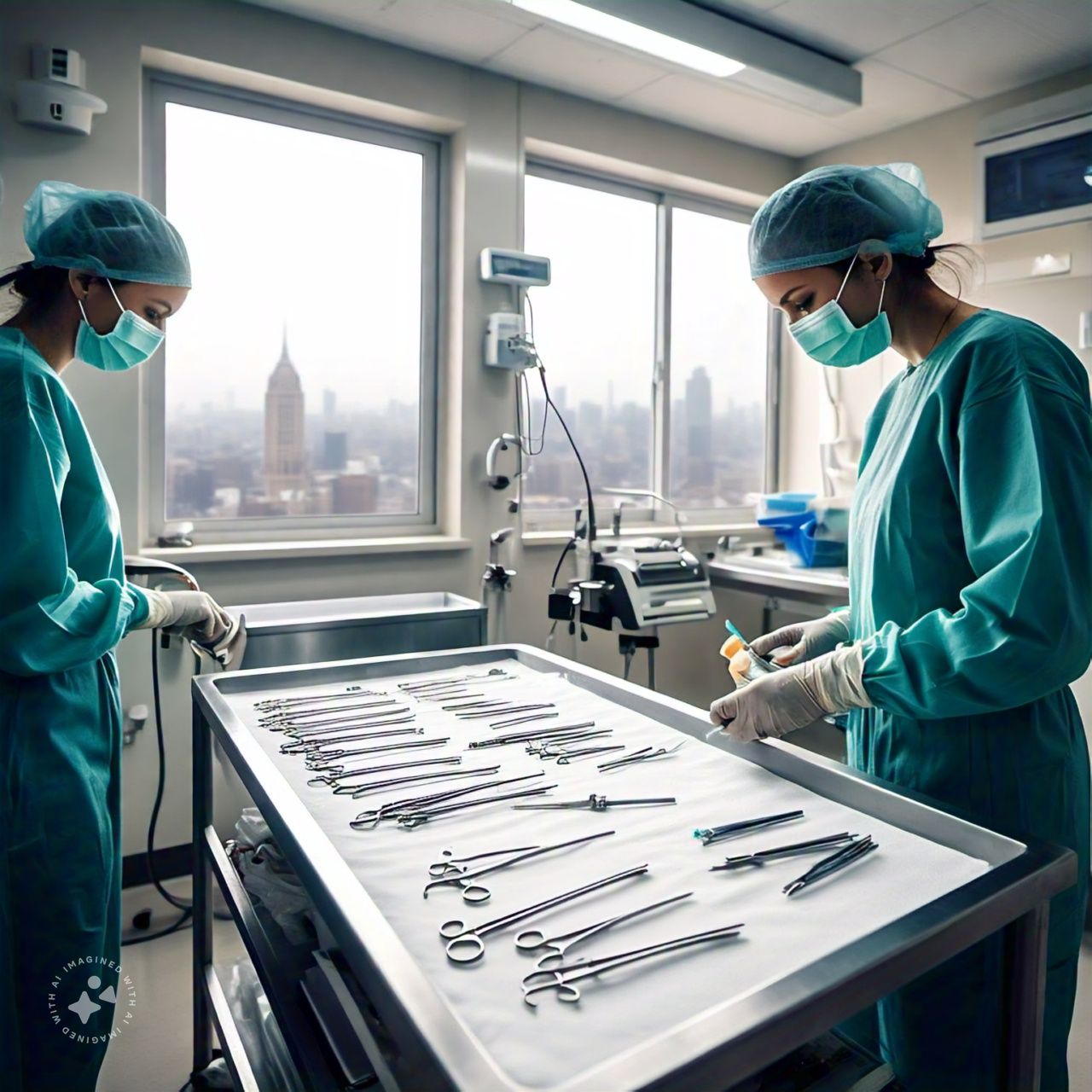
How Proper Maintenance Extends the Life of Surgical Tools
Surgical instruments are the backbone of medical procedures. Their performance can directly impact patient outcomes and the efficiency of healthcare providers. Regular maintenance ensures these tools remain in optimal condition, prolonging their usability and saving costs in the long term. This comprehensive guide explores how proper care can enhance the lifespan of surgical instruments.
Importance of Maintaining Surgical Instruments
Regular maintenance of surgical instruments is essential for ensuring their performance and longevity. Neglecting care can lead to deterioration, increasing the risk of surgical complications and expensive replacements. A well-maintained tool ensures precision and reduces the risk of infections.
Understanding the Types of Surgical Instruments
Surgical tools are designed for specific purposes, including cutting, grasping, and suturing. For example, ophthalmic surgical instruments, crafted for delicate eye procedures, demand precise handling and cleaning due to their intricate design. Reliable manufacturers and suppliers like T Surgical Instruments provide high-quality products that, with proper care, can last for years.
Steps for Proper Cleaning of Surgical Instruments
1. Pre-Cleaning
Pre-cleaning immediately after surgery helps prevent debris from hardening on the instruments. Use lukewarm water and an enzymatic cleaner to dissolve organic material.
2. Manual Cleaning
Manual cleaning ensures thorough removal of debris. Use soft brushes to clean crevices, taking care not to damage delicate parts.
3. Ultrasonic Cleaning
Ultrasonic machines use high-frequency sound waves to remove microscopic debris, making them ideal for intricate instruments like ophthalmic tools.
The Role of Sterilization
Sterilization eliminates all microorganisms from surgical tools. Popular methods include steam autoclaving, dry heat, and chemical sterilants. Consistent sterilization is critical for maintaining the tools’ integrity and ensuring patient safety.
Proper Storage Techniques
Correct storage is vital for prolonging the life of surgical instruments. Use sterilized trays or containers to keep tools organized and protected from damage. Instruments should be stored in a dry, clean environment to prevent corrosion.
Common Mistakes in Surgical Instrument Care
1. Using Harsh Chemicals
Harsh cleaning agents can corrode the surface of instruments. Always use approved solutions.
2. Improper Drying
Residual moisture can lead to rust. Ensure instruments are completely dry before storage.
3. Overlooking Regular Inspections
Failing to check for wear and tear can result in using faulty tools, risking patient safety.
The Cost of Neglect
Neglected instruments can lead to operational inefficiencies, increased costs for repairs or replacements, and compromised patient outcomes. Regular maintenance saves money and time in the long run.
The Impact of Quality Manufacturers
Sourcing from reliable manufacturers ensures access to durable and high-quality surgical tools. Companies specializing in ophthalmic surgical instruments, like T Surgical Instruments, emphasize quality, making maintenance easier and more effective.
Training and Education for Maintenance
Training staff in proper cleaning, sterilization, and handling techniques ensures the longevity of surgical tools. Regular workshops and guidelines are essential for maintaining standards.
Innovations in Maintenance Technology
Advancements such as automated cleaning systems and enhanced sterilization methods simplify maintenance processes, improving efficiency and consistency in care.
Eco-Friendly Maintenance Practices
Switching to biodegradable cleaning agents and energy-efficient sterilization methods can reduce environmental impact while ensuring instrument longevity.
How Proper Maintenance Benefits Healthcare Providers
1. Cost Savings
Well-maintained instruments reduce the need for frequent replacements, saving money.
2. Enhanced Efficiency
Operational delays caused by faulty tools can be minimized.
3. Improved Patient Outcomes
Properly maintained tools ensure precision and safety during procedures.
FAQs
1. How often should surgical instruments be cleaned?
Surgical instruments should be cleaned immediately after use to prevent debris buildup and ensure effective sterilization.
2. Can surgical instruments be cleaned in regular dishwashers?
No, surgical instruments require specialized cleaning equipment to ensure they are thoroughly cleaned without damage.
3. Why is ultrasonic cleaning necessary?
Ultrasonic cleaning reaches microscopic debris in crevices, ensuring comprehensive cleanliness.
4. How do I prevent rust on surgical tools?
Dry instruments completely before storage and use corrosion-resistant cleaning agents.
5. What is the lifespan of surgical instruments?
With proper care and maintenance, surgical instruments can last several years, depending on usage frequency and material quality.
6. Where can I find reliable ophthalmic surgical instruments?
Trusted manufacturers like T Surgical Instruments provide high-quality and durable surgical tools tailored to medical professionals’ needs.





Leave a Reply